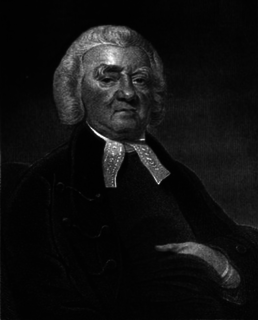Цитата Джейн Портер
Великодушие выше обстоятельств; и всякая добродетель, которая зависит от этого, является скорее конституцией, чем принципом.
Темы цитат
Связанные цитаты
Я признаю, что в обычном порядке правления изложение законов и конституции возлагается на судебную власть. Но я прошу знать, на каком принципе можно утверждать, что какой-либо один департамент черпает из Конституции больше полномочий, чем другой, в определении границ полномочий отдельных департаментов.
Глаза человечества будут прикованы к вам, чтобы увидеть, будет ли правительство, которое сейчас более популярно, чем оно было много лет назад, производить больше моральных и политических добродетелей. Мы можем рассчитывать на Армии для нашей защиты, но Добродетель — наша лучшая Безопасность. Невозможно, чтобы государство долгое время оставалось свободным, где Добродетель не почитается в высшей степени.
Сохранение или отмена принципа представительства зависит от самого государства, потому что от него зависит, останется ли оно членом Союза. Отрицать это право было бы несовместимо с принципом, на котором основаны все наши политические системы, а именно, что народ во всех случаях имеет право определять, как им управлять. Это право следует рассматривать как составную часть первоначального состава органов государственного управления, которое, хотя и не было выражено, но было взаимно понято. . .
Все еще остается одно великодушное усилие, одна жертва предубеждения и страсти, которую должны сделать люди по всей стране, которые до сих пор следовали стандартам политической партии. Это значит отбросить все остатки злобы друг на друга, обняться как соотечественники и друзья и уступить одним только талантам и добродетели то доверие, которое во времена принципиальных разногласий оказывалось только тем, кто носил знак партийной общности.
Итак, если, как мы говорим, хорошие мастера в своей работе смотрят на середину и если добродетель, подобно природе, точнее и лучше всякого искусства, то из этого следует, что добродетель имеет свойство попадать в середину. Я имею в виду моральную добродетель [не интеллектуальную], поскольку она связана с эмоциями и действиями, в которых можно иметь избыток или недостаток или должное среднее.





































